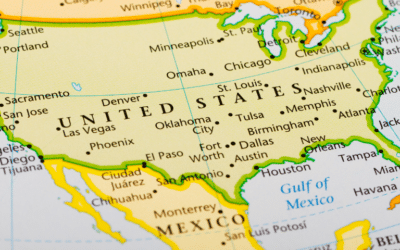Financial incentives are an effective tool to encourage the adoption of energy-efficient improvements in businesses and homes. These energy-efficient incentives can take the form of loans, rebates, grants, and bonds. Income tax credits and deductions, along with sales tax reductions and exemptions on eligible products designed to improve energy efficiency are other examples of existing incentives.
Taking advantage of these incentives can help remove crucial barriers preventing businesses and homeowners from making the upgrades. Financial incentives can decrease the amount of time it takes to begin seeing payback from the upgrades, making the initial investment more cost-effective. These incentives also increase consumer awareness of eligible energy-efficient products which encourages manufacturers to ramp up production. As production increases, prices of these products continue to fall making them more affordable to consumers.
Every state is different, so let’s look at the incentives for Pennsylvania.
Incentive Rebate360 is the only fully turn-key incentive and rebate recovery service provider in the U.S. We are here to maximize your rebate recovery returns, and offer a helping hand in your energy efficient projects. Plus, we can “Find” you the money before you decide on a project. Schedule a call with us today!
Incentives for Pennsylvania
Pennsylvania offers several energy-efficient incentives to businesses and property owners. Here’s a brief look at the incentives for PA.
- Alternative and Clean Energy Program: The Alternative and Clean Energy Program provides loans and grants to eligible businesses to help offset the costs associated with developing, utilizing, and constructing clean and alternative energy projects. The program focuses on the infrastructure associated with liquified and compressed natural gas stations, along with other energy conservation and efficiency projects.
- Pennsylvania Sustainable Energy Finance Program (PennSEF): The program is managed by the Pennsylvania Treasury Department in partnership with the Foundation for Renewable Energy and Environment. Eligible applicants include municipalities, universities, schools, and hospitals who will receive low-cost capital, along with legal and technical guidance for their energy improvement projects. The ESCO also provides free energy audits. Financial support for the program is provided by the West Penn Power Sustainable Energy Fund.
- Alternative Fuels Incentive Grant (AFIG): Managed by the Pennsylvania Department of Environmental Protection, the program provides funding for alternative, clean fuel transportation projects in the state’s energy sector.
- High Performance Building Incentives Program: The program provides loans and grants to help cover costs associated with the design and construction of energy-efficient buildings. It also covers upgrades to existing structures.
- Small Business Advantage Grant Program: Eligible small businesses can receive 50% or up to $5,000 to offset the costs associated with the purchase of energy-efficient or pollution-prevention equipment. It can also be used toward the adoption of waste reduction processes.
- Green Energy Loan Fund: The Pennsylvania Green Energy Loan Fund (GELF) is supported by both the Pennsylvania Department of Environmental Protection and the U.S. Department of Energy and managed by The Reinvestment Fund. The program provides financial incentives to for-profit businesses, nonprofit organizations, local governments, multifamily residential, and industrial companies. The incentives help provide financing for energy-efficient retrofits and the installation of energy-conservation and high-performance systems in buildings throughout the state. Homeowners are exempt from the program.
- Small Business Pollution Prevention Assistance Account Loan Program (PPAA): Providing fixed-rate, low-interest loans to small businesses, the PPAA is working to make projects designed to reduce energy usage, waste, or pollution more affordable. The program is a collaboration between the Department of Environmental Protection (DEP) and the Department of Community and Economic Development (DCED) and is working to help small businesses meet environmental regulations.
- Pennsylvania Energy Development Authority (PEDA): Created by the Pennsylvania Energy Development Authority and Emergency Powers Act in 1982, and revised in 2004, the program is an independent public financing organization. Its goal is to advance clean and alternative energy programs in the state which include, solar energy, wind, low-impact hydropower, geothermal, biomass, landfill gas, fuel cells, integrated gasification combined cycle, waste coal, coal-mine methane, and demand management projects. Currently, the program can award loans, loan guarantees, and grants to eligible applicants. Tax-exempt and taxable bond funding are also available under the program.
To learn more about energy-efficient incentives in Pennsylvania, contact us today. Call 480-653-8180, email [email protected], or schedule a call that fits your needs by clicking the button below.
Reference: American Council for an Energy-Efficient Economy (2023). State and Local Policy Database. ACEEE. https://database.aceee.org/state/financial-incentives






0 Comments